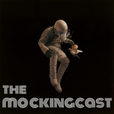
Summary: <p>We’re living in an age of “<a href="http://www.mbird.com/2016/05/subjective-sovereignty-and-the-need-for-an-objective-gospel/">subjective sovereignty</a>,” where life is “all the feels” and emotional offense is king. It is a time less describable by policy discord and differences of opinion, but instead by <a href="http://www.mbird.com/2017/03/the-teachers-are-afraid-of-the-pupils/">vindictive joy and holy rage</a>. Arguments are couched in first-person noise—disagreements have the sting of personal attacks—which means the arguments are, on the whole, harder to argue or critique. As we’ve become “touchier” about the things we care about, the logic behind those sensitivities has also faded. </p> <p><span style="font-weight: 400;">This trend goes hand in hand with another trend that’s been provoked, namely, that America is only becoming more spiritually bankrupt/unmoored. <a href="https://www.nytimes.com/2017/03/31/opinion/the-strange-persistence-of-guilt.html?rref=collection%2Fcolumn%2Fdavid-brooks&action=click&contentCollection=opinion&region=stream&module=stream_unit&version=latest&contentPlacement=6&pgtype=collection">David Brooks recently wrote along these lines</a>, that</span></p> <blockquote><span style="font-weight: 400;">Religious frameworks no longer organize public debate. Secular philosophies that grew out of the Enlightenment have fallen apart. We have words and emotional instincts about what feels right and wrong, but no settled criteria to help us think, argue and decide.</span></blockquote> <p><span style="font-weight: 400;">You’d think this would lead to the age of great moral relativism, where all the objective strictures are let go and the only mantra remaining is “You Do You.” But this hasn’t happened. Instead, Brooks writes, “<strong>society has become a free-form demolition derby of moral confrontation</strong>.” It seems we feel so much, but we can’t seem to agree on </span><i><span style="font-weight: 400;">why</span></i><span style="font-weight: 400;"> we feel it and </span><i><span style="font-weight: 400;">who’s</span></i><span style="font-weight: 400;"> to blame. </span></p> <p><span style="font-weight: 400;">So the answer, of course, is to get some Truth, right? Get to church! Fall on the Rock! God provides the mooring—the </span><i><span style="font-weight: 400;">why</span></i><span style="font-weight: 400;"> behind your hurt—and the cross gives you your scapegoat. The Good News gives you your needed justification. </span></p> <p><span style="font-weight: 400;">But what do you do with all that rage? Therapy? I don’t know about you, but the term “therapeutic” has always bristled—it sounds like the hippy-dippy opposite of “grounded” or “objective.” It sounds a lot more like “You Do You”—do what </span><i><span style="font-weight: 400;">feels good</span></i><span style="font-weight: 400;"> to you. But this is largely a <a href="http://www.mbird.com/2008/05/on-guilt-some-excerpts-from-clinical/">misunderstanding</a>, mostly because of counseling that truly <a href="http://www.mbird.com/2016/05/from-the-church-issue-13-signs-of-bad-pastoral-care/">hasn't helped</a>. Just as God gives us the Good News, God also administers his healing in the gracious counsel of another. </span></p> <p><span style="font-weight: 400;">With the help of some of our favorites, let's look into the relationship between the <em>objective</em> News of the Gospel, and very <em>subjective</em> (though no-less-real) needs we carry around with us every day, and how those needs are addressed within the realm of pastoral care and counseling. </span></p>
